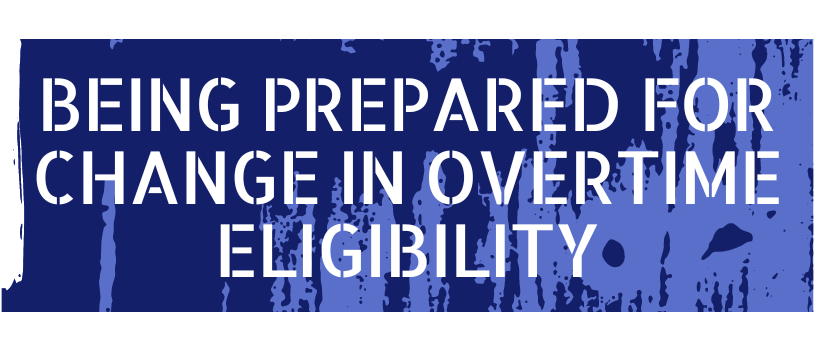There are approximately 43 million workers in the U.S. that are considered exempt under the Fair Labor Standards Act (FLSA), which means these individuals are not entitled to overtime pay when they work over 40 hours per week. To be classified as exempt, an employee must perform high-level work as well as be paid a salary above a certain level. Generally, these individuals work in a professional, executive, computer professional, administrative, or outside sales roles.
The salary threshold for exempt employees is $35,568 which was adopted in March of 2019 by the Trump administration. In 2016, the Obama administration had proposed more than doubling what the current threshold was at the time, which was $23,660. In the end, the court did block the increase and when the Trump administration took office they did not support this change, and therefore withdrew the proposal.
President Biden suggested throughout his presidential campaign that he would be increasing the salary threshold. It is said that he may increase the salary greater than what the 2016 Obama administration had proposed. With this in mind, be prepared for a potential increase by reviewing job duties of salaried employees and begin identifying staff whose salaries may be below the proposed threshold.
In order to avoid misclassification liability, ensure that employees’ duties are consistent with those who are exempt, and that their salary is above the new threshold, once announced. Unfortunately, this can cause salary compression issues for businesses. This means that there is little difference in pay between team members despite the difference in experience and performance which can affect employee morale. If you have to change an employee from exempt to non-exempt, this status change could be considered a demotion and result in a loss of work flexibility and possibly benefits.
For a staff member to be classified as “exempt,” an employee must also satisfy the duties test which must fall within “white collar exemptions”. These exemptions are the executive, administration, professional, computer professional, and outside sales. The FLSA describes each exemption as the following:
Executive
This exemption applies to those whose primary responsibilities consist of managing the business. The employee must oversee the work of at least two or more staff and should have the authority to hire or fire. Common titles that fall within the executive exemption are general managers, supervisors, and business owners.
Administrative
This is considered the most common exemption used to classify staff as exempt. To be classified in this category, the staff must perform office duties or work related to the management of the organization. The most commonly recognized exempt administrative positions are payroll managers, office managers, and executive assistants.
Professional
There are four categories that the FLSA recognizes for exempt professional employees which include “artistic or creative professionals”, “teachers”, “learned professionals”, and “employees engaged in the practice of law or medicine”. These individuals will have a college degree or similar training that will qualify them as a professional in the held position.
Computer Professionals
There are two computer professional exemptions. First, a worker must be paid a salary of at least $684 per week. The other exemption applies to those who are paid at least $27.63 per hour. These exemptions apply to those who have an educational or professional background in their position. Common titles of those that qualify for the exemption are computer programmers, software engineers, and computer systems analysts.
Outside Sales
There is no minimum requirement for this exemption. Employees must meet the duties and location tests. To qualify for this exemption, the staff member’s primary duty should be to make sales while regularly away from their employer’s business. Generally, these individuals should be away 50% or more of the time and are usually are commission based and are not considered “inside sales”. Inside sales refers to those who do sales at their place of business. However, it is possible for inside sales personnel to be considered exempt if they qualify for the “executive” and “administrative” exemption.
Although we cannot predict if the Biden administration will move forward with increasing the salary threshold, it is still important to begin determining which staff members’ positions will be affected. By being prepared, you will then be in a better position if you have to defend a position that had been classified as exempt.
